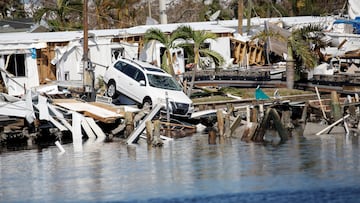What to do in the event of a prolonged power outage: tips and how to prepare
Severe storms have recently been affecting parts of the US, at times causing power outages. Here’s what you can do in the event that you lose electricity.

Hurricane Idalia is now threatening Florida, which is bracing itself for flash flooding that could possibly affect many households. Such potent weather events can cause power outages, which sometimes can last much longer than just a couple of hours.
An extended period without electricity can be challenging because of the discomfort and risks that it brings. The best way to handle it is through proper preparation, which you can start as soon as you learn of a severe weather warning.
READ ALSO: State of emergency declared in Florida counties
Here are some ways to prepare for a prolonged power outage.
Emergency kit
Prepare a bag or backpack that contains essential supplies such as flashlights and batteries, first aid kit, blankets, water, non-perishable food, and a can opener. This kit is one that would be easy to grab and carry in the event that you need to leave your house; for example, in a flash flood.
Food and water
This is over and above the food and water in your emergency pack. Keep a stock of non-perishable food items such as canned goods and bottled water. Keep your refrigerator and freezer closed to preserve the cold and keep the food from spoiling.
Charge your devices
Once you are aware that inclement weather is coming, make sure that your phones, laptops, and other important electronic devices are fully charged. Having fully charged power banks is helpful too.
Flashlights
Have at least one flashlight for each member of the family and keep batteries on hand. Candles and matches should be avoided, because they are a fire hazard.
READ ALSO: How hurricanes get named
Be informed about your medical needs
If anyone in your household relies on medical equipment that requires electricity, such as oxygen tanks, or medicines that need refrigeration, make sure you have backup power sources. Talk to your medical provider about how to deal with these needs in case of a power outage. Know how long refrigerated medicines can last at higher temperatures, and get a detailed plan on what to do with medications that are vital to life.
Appliances
When the power goes out, disconnect appliances and electronic gadgets. It is not enough to simply turn them off. Unplugging them helps avoid damage from electrical surges or spikes when power returns.
If you use camp stoves or charcoal grills for cooking, only use them outdoors at least 20 feet away from windows.
Stay warm
When the power outage occurs during cold weather, layer up with warm clothing and blankets. Do not use a gas stove as a heat source for your home. If the temperature becomes too extreme, find out if there is a community location near you that has power.






